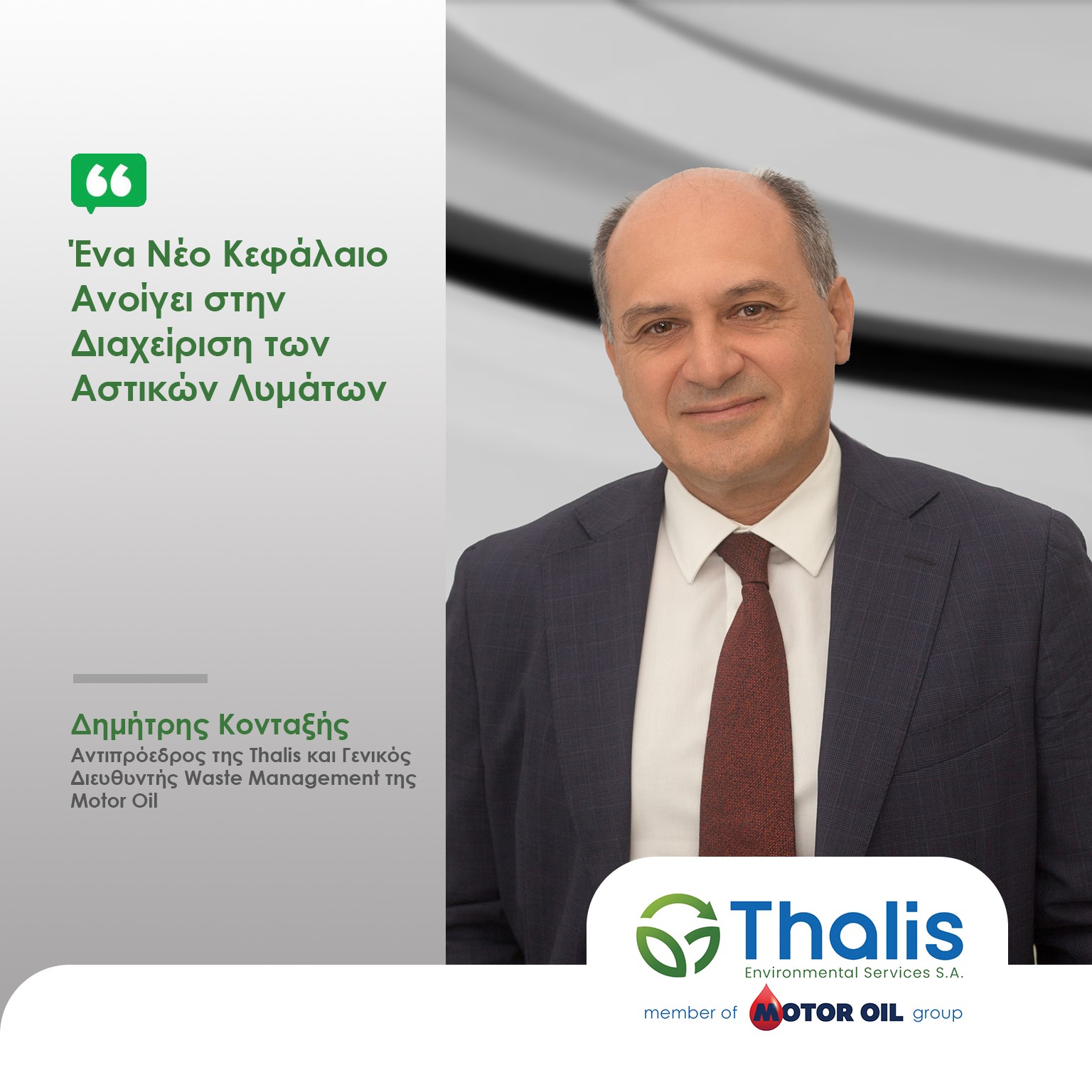
Article by Dimitris Kontaxis, Vice President of Thalis and General Manager of Waste Management at Motor Oil, in the magazine Water&Waste:
Published : April 1st, 2024
Mr. Dimitris Kontaxis, Vice President of Thalis, published a significant intervention in the Water&Waste magazine regarding the processing and utilization of treated liquid waste as a source of new natural resources that leads to water conservation.
The article titled "A New Chapter Opens in Urban Waste Management" highlights the challenges Greece faces with the revised Directive of the European Commission on the treatment of urban waste.
In his intervention, Mr. Kontaxis emphasizes, among other things, "With the new Directive, processing facilities for urban waste with an equivalent population of over 100,000 inhabitants are initially required to adopt tertiary treatment with a deadline of 2035. However, Member States should identify settlements with populations between 10,000 and 100,000 inhabitants where concentrations or accumulation of micropollutants pose risks (by 2030) and apply tertiary treatment by 2040. The new directive adopts the Swiss model for tertiary treatment and requires the removal of all micropollutants by at least 80%. Advanced oxidation techniques will play a significant role in achieving this goal for tertiary treatment, as well as other advanced treatment methods such as activated carbon (which is not currently used in Greece) for full-scale urban waste treatment.
With the revision of the regulatory framework, the European Union signals the upgrade of sustainable water management and environmental protection. In February 2024, THALIS, a subsidiary of the Motor Oil Group, undertook the implementation of the project for the Heraklion Sewage and Water Supply Company (DEYA) "Addition of tertiary treatment to the Heraklion WWTP and utilization of effluent for irrigation," funded by the Recovery and Resilience Fund. The project achieves full tertiary treatment of all wastewater through ultrafiltration (UF) while simultaneously the combined use of activated carbon achieves compliance with the requirements of the revised European directive for micropollutant removal. As a result, the new European Commission guidelines for urban waste are adopted for the first time in Greece.The utilization of processed liquid waste and thereby the conservation of water resources significantly contributes to addressing the impacts of current water scarcity and drought in the Mediterranean region and the intense salinization of underground aquifers. Moreover, the reduction of water pollution is expected to have a direct beneficial impact on ecosystems and support biodiversity conservation. Finally, better management of water quality and quantity in urban areas also contributes to better addressing the challenges of climate change."
Mr. Kontaxis concludes, "THALIS, a subsidiary of the Motor Oil Group, places the Circular Economy at the core of its business activity, aiming to decisively contribute to green transformation and the enhancement of the sustainability of Greece's infrastructure systems."
Read the article here: https://water-waste.gr/site/3d-flip-book/%CF%84%CE%B5%CF%8D%CF%87%CE%BF%CF%82-167-%CF%86%CE%B5%CE%B2%CF%81%CE%BF%CF%85%CE%AC%CF%81%CE%B9%CE%BF%CF%82-2024/